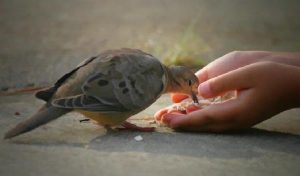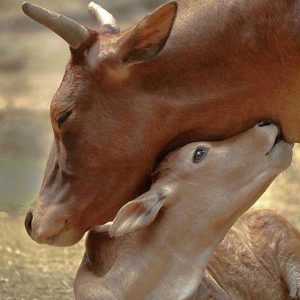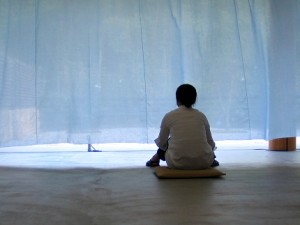 The Yogabliss, Two Rivers/RiverTree Yoga on-line Moving into Meditation classes met this morning. We explored empathy by cultivating a sense of tenderness. We evoked tenderness through imagination, memory and poetry. Tenderness is intimately connected to the experience of attunement: sensing another’s emotions. We are such sensitive, relational creatures. These qualities are often buried by the busyness, noise and stress of modern culture.
The Yogabliss, Two Rivers/RiverTree Yoga on-line Moving into Meditation classes met this morning. We explored empathy by cultivating a sense of tenderness. We evoked tenderness through imagination, memory and poetry. Tenderness is intimately connected to the experience of attunement: sensing another’s emotions. We are such sensitive, relational creatures. These qualities are often buried by the busyness, noise and stress of modern culture.
We were moved by Teddy Macker’s poem, The Otters and the Seaweed. Otters are such beautiful playful beings. Teddy’s poem offers powerful imagery showing their vulnerability to the harshness of life.
We drew on the work of Polish writer Olga Tokarczuk. Her 2018 Nobel Prize acceptance speech, The Tender Narrator, describes tenderness as an essential quality to our human relations as well as her writing. In her speech and her magical book, Drive Your Plough Over the Bones of the Dead, she writes about our capacity to see all living beings as worthy of our tender concern.
We also reflected on meditation teacher Ajahn Sucitto’s essay, The Good Friend. A good friend is someone who is willing to stay with us. This willing acceptance leads us to compassion. We sense our shared fate – we see ourselves in one another – and our hearts open.
Relaxed Reflection
Recalling that sense of tenderness – what Polish writer Olga Tokarczuk describes as “the most modest form of love.” We can offer this modest love in our practice. Just as we float on pools of grief we have springs of tenderness inside us. Ajahn Sucitto puts it simply: “. . . To end suffering we need to relate to what arises [with empathy] . . . Empathy is a gift to our hearts and to all living beings.”
Poet Teddy Macker calls on our hearts in his poem The Otters and the Seaweed:
This is what you need to know:
you need to know that otters wrap themselves
in seaweed so they won’t,
while sleeping at night, float out to sea…
Are you imagining this?
 Can you see the otters actually doing this?
Can you see the otters actually doing this?
Does it break your heart a little?
Does it seduce you just a bit
into loving more
this odd hard world?
Oh otters, wrap yourselves tight! And sleep,
exactly like you do, floating but seaweed-held
in our salty living waters! Oh otters,
wrap yourselves tight! And you,
the one who doesn’t, the one who doesn’t
tether himself down right,
we are with you as you float away,
we are with you as you sleep
and lose yourself in the night.
Like the otters . . . let’s wrap ourselves up . . . with tender awareness . . . Returning to the experience of feeling our bodies on the ground. . . . In this quiet unfolding we can meet ourselves just as we are . . . Befriending all the inner faces . . . In his essay, The Good Friend, Ajahn Sucitto encourages us to let go of impatience and judgment in friendship with ourselves and with an other. He writes:
 . . . the willingness to meet another . . . is love . . . the wider the range of an other person’s experience you can be with, the deeper, stronger the love. The basic love, metta [loving kindness] means at this moment I’m not pulling away from you . . . not shielding myself . . . Compassion . . . is a development from that meeting place . . . born with the recognition and feeling for the other person’s suffering. . . .
. . . the willingness to meet another . . . is love . . . the wider the range of an other person’s experience you can be with, the deeper, stronger the love. The basic love, metta [loving kindness] means at this moment I’m not pulling away from you . . . not shielding myself . . . Compassion . . . is a development from that meeting place . . . born with the recognition and feeling for the other person’s suffering. . . .
In our practice, we train in meeting what arises. We train in meeting our hearts and the hearts of others. This is where the possibility of understanding begins. This is how we forge the bonds of friendship. Navigating the difficulties of ‘otherness.’ We see how we make parts of ourselves ‘other’ . . . how we make people who we know and don’t know ‘other.’ We train in letting go of impatience and judgment. Learning to forgive ourselves and others again and again.
It begins with tenderness. In her acceptance speech, The Tender Narrator, Nobel Laureate, Olga Tokarczuk said
. . . Tenderness appears wherever we take a close and careful look at another being, at something that is not our “self” . . . [It] goes far beyond empathetic fellow feeling.
 Instead it is the conscious, though perhaps slightly melancholy, common sharing of fate. . . . Tenderness is deep emotional concern about another being, its fragility, its unique nature, and its lack of immunity to suffering and the effects of time. Tenderness perceives the bonds that connect us, the similarities and sameness between us. It is a way of looking that shows the world as being alive, living, interconnected . . . Tenderness personalizes everything to which it relates, making it possible to give it a voice, to give it the space and the time to come into existence, and to be expressed.
Instead it is the conscious, though perhaps slightly melancholy, common sharing of fate. . . . Tenderness is deep emotional concern about another being, its fragility, its unique nature, and its lack of immunity to suffering and the effects of time. Tenderness perceives the bonds that connect us, the similarities and sameness between us. It is a way of looking that shows the world as being alive, living, interconnected . . . Tenderness personalizes everything to which it relates, making it possible to give it a voice, to give it the space and the time to come into existence, and to be expressed.
The conscious realization of our shared fate opens our hearts. We’re moved beyond the boundaries of ‘otherness.’ As Olga said – the world is enlivened by the recognition of our interconnection. In her magical book, Drive Your Plough Over the Bones of the Dead, she writes:
. . . it also crossed my mind that in spite of all, in spite of our fragility and ignorance, we have an incredible advantage over the stars – it is for us that time works, giving us a major opportunity to transform the suffering, aching world into a happy and peaceful one.
 In our practice we can reflect on how we befriend ourselves and others. Not to assess, once again, how we are measuring up. Our reflection can be in the service of love and compassion. We reflect on our own hearts, the hearts of the people in our lives and the hearts in the collective systems of our society. It’s with tenderness that we can feel for the otter that isn’t tethered. We stay with our friend floating away. We are with our friend sleeping into the night. With tenderness, we can hear the voices that are often drowned out by the world’s grinding noise. . . .
In our practice we can reflect on how we befriend ourselves and others. Not to assess, once again, how we are measuring up. Our reflection can be in the service of love and compassion. We reflect on our own hearts, the hearts of the people in our lives and the hearts in the collective systems of our society. It’s with tenderness that we can feel for the otter that isn’t tethered. We stay with our friend floating away. We are with our friend sleeping into the night. With tenderness, we can hear the voices that are often drowned out by the world’s grinding noise. . . .

